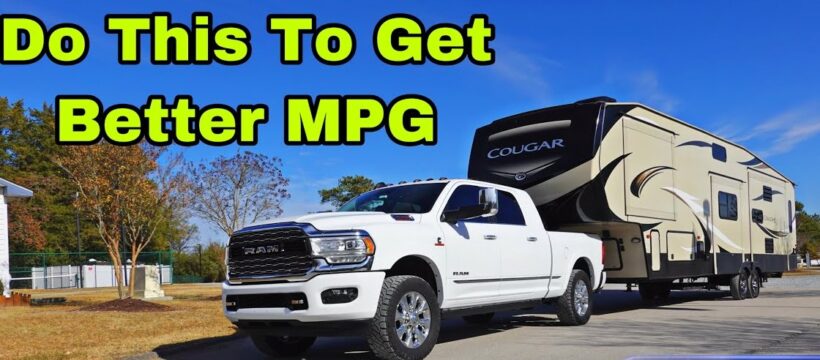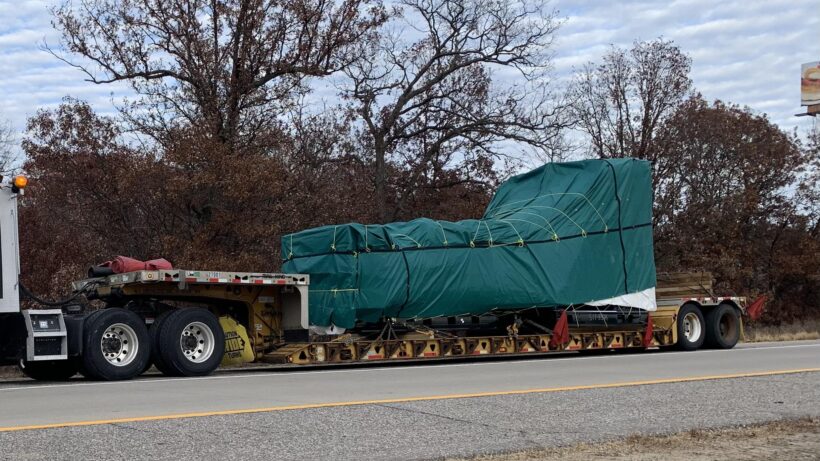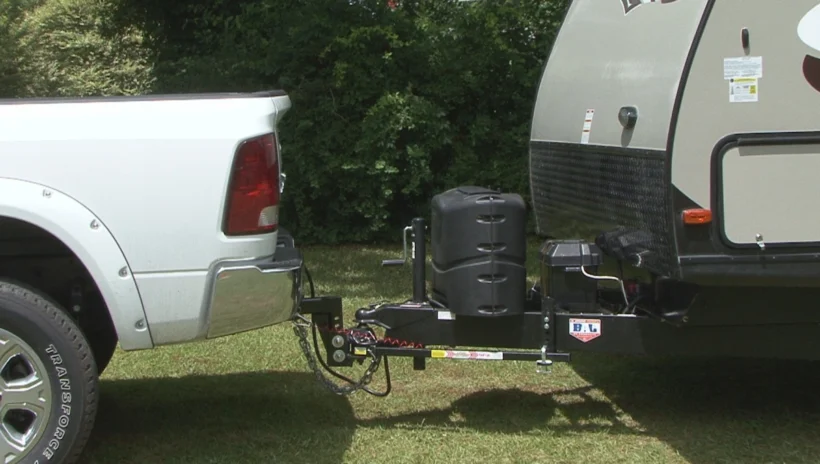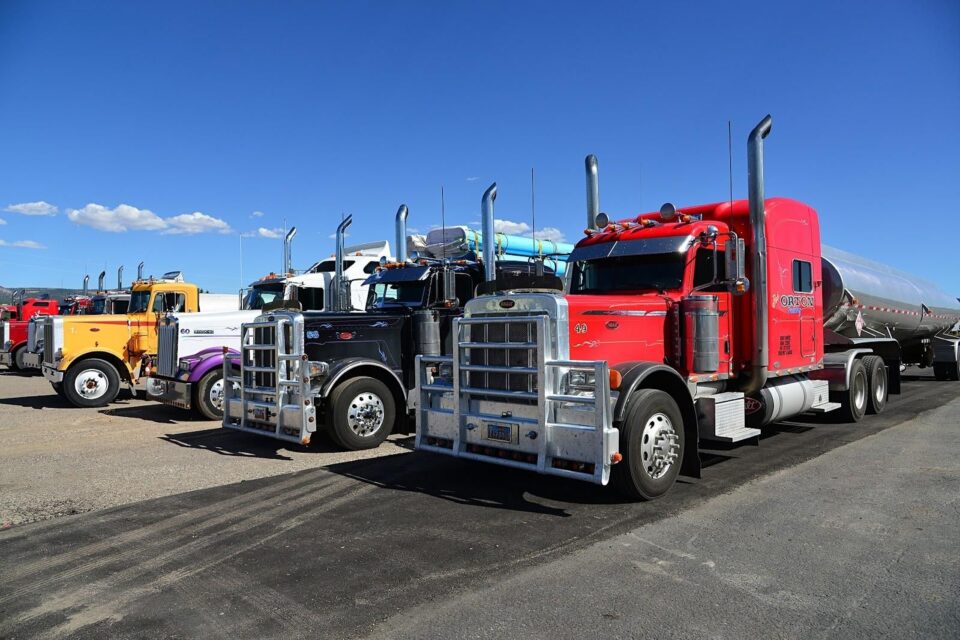Towing a vehicle sure comes with a price – it can considerably decrease your fuel efficiency. The Department of Energy says that every extra 100 lbs of weight in a truck reduces the fuel economy by two percent.
But don’t worry! Our blog post will provide tips and techniques to reduce your gas consumption while towing, giving you back some savings at the pump. So join us as we dive deep into ways to increase fuel efficiency when towing and save more!
Tips for Improving Fuel Efficiency While Towing

Planning your route and driving at a steady speed, as well as ensuring regular maintenance of your vehicle and trailer, are all critical components for reducing gas consumption while towing.
Plan your route with efficiency in mind
Knowing the route is a great way to ensure you will make fewer stops and end up with an economical overall driving experience. To optimize your fuel efficiency when towing, plan for the most efficient routes – try to avoid windy roads and intersections; look into routes that have fewer stops and less traffic.
Additionally, road conditions play an important role in reducing gas consumption – use apps such as Google Maps or Waze planning tools to better inform yourself of possible construction delays or other factors that may hinder your travel time.
When possible aim for level roads without any bumps or big speed changes as these can eat away at fuel efficiency. Moreover, don’t forget about safety whenever considering fuel economy – be sure not to drive at higher speeds than allowed by law as this will affect both your car’s performance and potentially be endangering those around you.
Drive at a slower pace
When it comes to fuel efficiency while towing, one of the best strategies is driving at a slower pace. Research has shown that reducing your speed by just 5 to 10 kilometers per hour can measurably improve fuel economy.
Slowing down and driving more conservatively can result in 7% – 14% increase in mileage, so it really pays off! Driving at 55 mph or less is recommended as the optimum speed for improving gas mileage when pulling a trailer; every 5 miles per hour over 50 will have a negative impact on fuel efficiency.
Even if you’re not towing anything heavy, remember that going too fast generally consumes more gas than reasonable speeds—generally between 45-60 mph. Slowing down helps conserve resources and protect the environment with fewer carbon emissions released into the air.
Consider the weight and loading of your vehicle and trailer
Excess weight can create extra drag, more resistance, and ultimately reduce fuel efficiency. When properly loaded, however, your vehicle and trailer can then combine forces for increased aerodynamic impact which will help boost gas mileage significantly.
To get the most out of your journey it is important to understand how loading affects MPG (Miles Per Gallon) in order to achieve maximum performance and greater fuel efficiency on the road.
It starts with taking inventory of what needs moving and packing only what is absolutely necessary before heading off – as any unnecessary or excess items add up quickly! This minimizes a good portion of the weight.
Once that’s taken care of, it’s time to focus on where these items are placed in terms of their effect on load balance – remember pointed objects should be mounted away from the trailer’s centerline or low ground clearance areas like wheel wells so they don’t scrape against other objects when going over bumps – otherwise causing extra resistance and thus decreasing energy-efficiency.
Loading should also be distributed evenly across both sides for proper stability; keep heavier belongings toward the rear axles wherever possible but still ensuring there won’t be an imbalance between left/right wheels jolting each time you brake or start up again as this causes acceleration pauses altering engine power output more adversely than smooth driving would.
Regular maintenance

Adhering to a maintenance schedule is key in improving fuel economy when towing. Proper vehicle servicing should include routine inspections, oil changes and filter replacements as these are essential for keeping the engine running efficiently and preserving maximum power output so as to improve fuel efficiency.
Keeping tires properly inflated and aligned will also help reduce drag on the car or trailer which will lead to improved mileage while you’re driving. Neglecting proper maintenance of your vehicle can cause a decrease in overall performance, increased fuel consumption and reduced reliability all while putting strain on other parts of the car which may result in costly repairs down the line.
Regularly inspecting brakes, throttle cable, fan belts or hoses and ensuring that they are functioning correctly is necessary for optimizing fuel economy during tows as well. Ultimately, following an appropriate maintenance schedule helps ensure that your vehicle is performing at its peak level allowing it to conserve more gas no matter how heavy your load might be!
Mindful driving techniques
When towing a vehicle, it is important to drive mindfully in order to maximize fuel efficiency. This includes gentle acceleration and early braking, staying in one lane whenever possible, and maintaining a consistent speed on highways.
Gentle acceleration can reduce fuel consumption as speeding up slowly reduces maximum power draw from the engine. Additionally, using the tow/haul mode option when available will help your vehicle run more efficiently.
How Towing Affects MPG (Miles Per Gallon)

Towing increases resistance and drag, which negatively affects vehicle fuel economy and MPG.
Increased resistance and drag
When towing, increased resistance and drag can significantly reduce fuel efficiency. As the vehicle’s speed increases, air resistance increases, causing the engine to work harder and burn more fuel.
The same is true when dragging an additional load such as a trailer because it increases wind friction on the vehicle itself. Moreover, certain types of trailers or recreational vehicles may not be aerodynamic designs which could cause greater turbulence thereby reducing gas mileage even further than normal.
These factors all combine leading to a decrease in MPG whilst towing compared with regular driving without a payload. It is important that drivers plan ahead when using their tow vehicle by taking into consideration any extra weight added from a trailer and its potential impacts on gas mileage before hitting the roads – remember it pays off in savings down the line!
Increased weight
One of the major factors that has a direct impact on fuel efficiency when towing is the increased weight and load. A heavier trailer adds more resistance, drag, and drag coefficient in comparison to vehicles without any haul attached.
This causes an imbalance as it requires more engine power from your vehicle which shifts the calculations required for gas consumption drastically. As per studies conducted by mechanical engineers at University Of Michigan, during acceleration or cruising speed with heavy trailers attached you will be consuming much more gas than normal driving conditions due to higher running cost such as friction losses and wind forces resulting in decreased fuel economy.
Aerodynamic impact

When towing a trailer, one of the main sources of decreased fuel efficiency is through aerodynamics. This means that as air moves around the vehicle, it experiences an increased level of drag which can reduce its overall fuel economy.
This drag increases with heavier loads and larger trailers due to their greater surface area.The additional weight when towing also places extra strain on the vehicle’s engine resulting in reduced MPG (Miles Per Gallon).
Furthermore, changes in air pressure caused by front-end shape or large wheel wells can impact aerodynamic performance and subsequently affect fuel economy. In order to minimize these effects, it is important for vehicles and trailers to be designed and spec’d with aerodynamics in mind.
Additional Ways to Boost Fuel Efficiency When Towing
There are a number of other measures vehicle owners can adopt to increase their fuel efficiency when towing, such as checking and adjusting tire pressure and alignment, reducing the weight of the trailer or cargo, using a suitable and efficient vehicle for towing, and avoiding unnecessary idling.
Check tire pressure and alignment
Maintaining proper tire pressure and alignment is a key factor in optimizing gas mileage when towing. Properly inflated tires significantly reduce resistance and drag, providing better vehicle performance, smoother ride, improved handling 10-15% fuel economy, reduced wear on the tires and ultimately lower emissions.
Checking your tire pressure regularly with a reliable gauge helps prevent major PSI drops which can lead to significantly reduced fuel efficiency of up to 0.2% per 1 psi drop according to the U.S. Department of Energy.
A professional wheel alignment service every year or so can also improve MPG (miles per gallon) while reducing excessive tire wear for an even greater savings at the pump over multiple trips with the trailer in tow.
Reduce vehicle and trailer weight

Reducing the weight of your vehicle and trailer can help dramatically improve fuel efficiency when towing. Excess weight exacerbates air resistance, meaning more fuel is needed in order to move the load along with any additional resistance it encounters.
Additionally, heavy loads may also reduce control over the acceleration and deceleration necessary for efficient driving circumstances. Minimizing the amount of items you are carrying or towing on your trip is a key factor in reducing gas consumption when towing.
Avoid unnecessary idling
When towing a trailer, it is important to remember that idling will decrease fuel efficiency and can have a negative impact on the environment. By reducing idle time, drivers can save money on fuel costs and reduce the amount of harmful emissions released into the air.
When waiting for more than one minute without driving, drivers should shut off their engine in order to conserve fuel. Additionally, unnecessary engine start-ups should be avoided as this expends extra energy and reduces overall mileage per gallon (MPG).
To Wrap Up
Towing a load can be expensive in terms of fuel consumption. Following some simple tips and strategies, such as planning your route with efficiency in mind and utilizing mindful driving techniques like avoiding rapid accelerations, obeying traffic lights and stop signs, using cruise control when available, keeping tires properly inflated, adhering to the maintenance schedule of the vehicle used for towing, reducing weight where possible both for the vehicle itself and its trailer, selecting an appropriate towing vehicle with respect to capacity versus fuel economy are essential if you want get the most miles per gallon while you are towing.
Even simple modifications such as lowering drag on your vehicle or switching to alternative fuel can make a difference. Taking into account these useful tips when managing your next trip will not only save gas but also reduce carbon emissions from burning gasoline and petrol – having a positive impact on our environment.
If you are ever in need of vehicle assistance in Tucson, Arizona, please check out our services to get the help you need. Our team at Towing Tucson are professionally trained to deal with all kinds of vehicle problems and we would love to extend a hand! Thanks for reading and happy towing!


